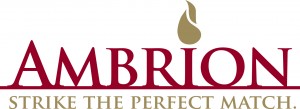Answering the ‘Tell Me About Yourself’ Question
The following is an excerpt from the March 2003 Fordyce Letter:
Experience has shown me that most of my clients will open the interview with some form of “Tell me about yourself” question. Your ideal answer should be a prepared and well-thought-out initial marketing statement of yourself and your skills that are applicable for the open position.
The answer to this question should be a three-part, pre-planned marketing statement that can more or less be reused from interview to interview. Even if you are not asked the dreaded question, preparing for it usually sets you up to open the interview confidently, intelligently, and impressively.
PART ONE of that three-part marketing statement is a one-sentence summary of your career
history. For example, let me share with you a former candidate’s opening sentence:
“I am a five-year veteran of public accounting with substantial experience working with publicly traded manufacturing clients.”
Your whole career needs to be condensed into one sentence that encapsulates the most important aspects of your career. You should attempt to leverage this experience in order to make your next career step.
PART TWO of the pre-planned marketing statement will be a one-, maybe two-sentence summary of a single accomplishment. This statement should capture the client’s attention! It immediately follows your initial career summary sentence from above. This accomplishment should be one that the client will be interested in hearing, one that is easily explained or illustrated, and one that clearly highlights your bottom line impact. When done correctly this will build interviewer intrigue about the accomplishment so that he/she inquires further, giving you an opportunity to further discuss your career success. The above candidate’s accomplishment sentences were:
“Recently, as a Manager in a Big Five public accounting firm, I had hands on experience working with US GAAP, FASBs, and SEC reporting issues. One of my clients was under an SEC investigation and I was able to work with the client and the SEC to verify the financial information provided in the 10K and 10Q. My work resulted in validating the financial reports that the client had published.”
PART THREE, the final piece of the marketing statement, is probably the most fluid piece. It needs to be a one-sentence summary of specifically what you want to do next in your career. The reason this third part is difficult is that it needs to specifically address what you want to do next, AND it needs to change from interview to interview to make sure it matches exactly what the client will be interviewing you for. The above candidate’s final statement was:
“For the next step in my career, I would like to move out of public accounting and build on my career as a financial reporting manager with a publicly traded company.”

